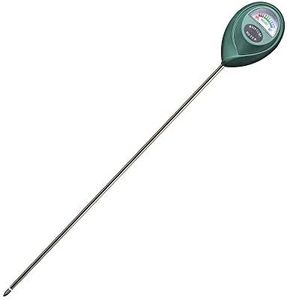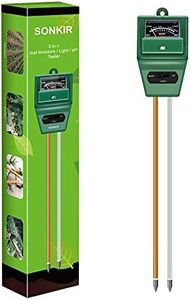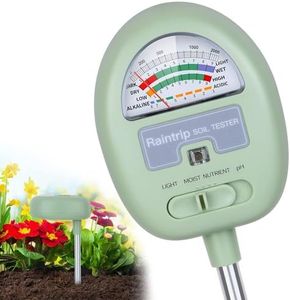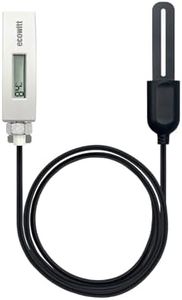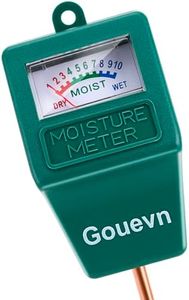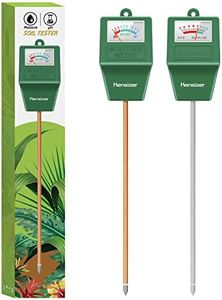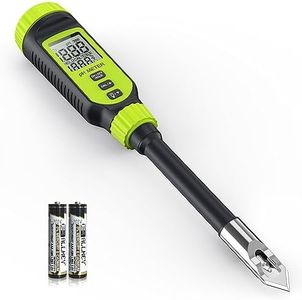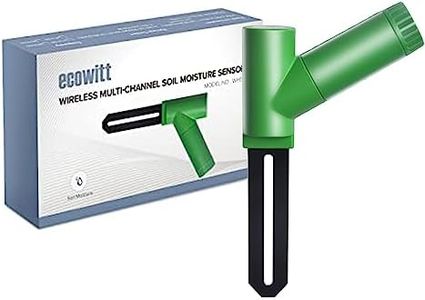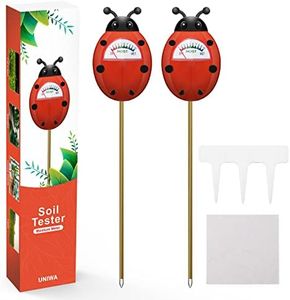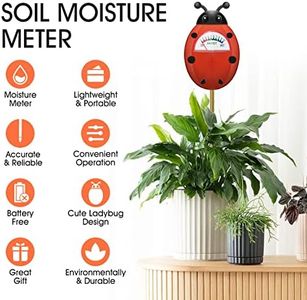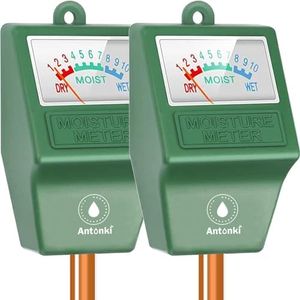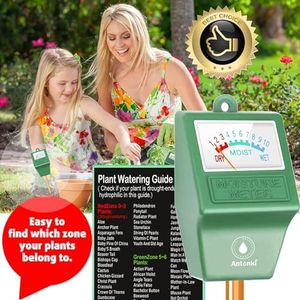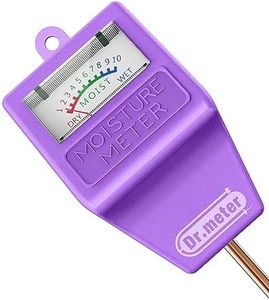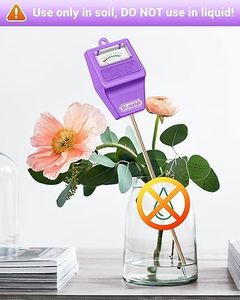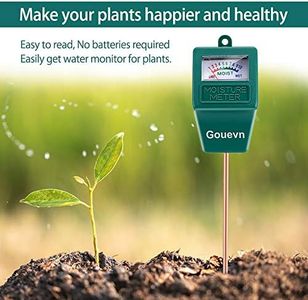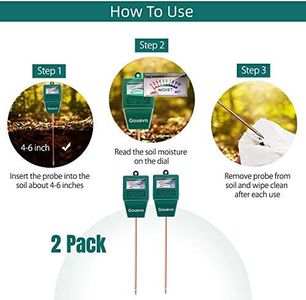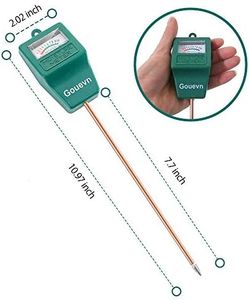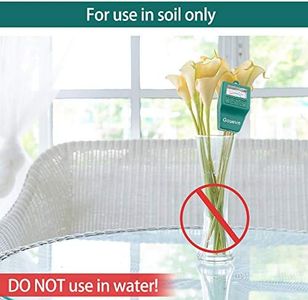10 Best Soil Moisture Testers 2025 in the United States
Winner
XLUX Long Probe Deep Use Soil Moisture Meter, Water Monitor Indicator Sensor, Hygrometer for Outdoor Indoor Large Pot Plants, Flower, Gardening, Farming
The XLUX Long Probe Deep Use Soil Moisture Meter is designed to help gardeners and plant enthusiasts monitor soil moisture levels accurately. A key feature is its 5.5-inch probe, which is longer than standard and allows you to measure moisture deep in larger and deeper pots. This is particularly useful for those who have large pot plants or who engage in gardening and farming, as it provides a more accurate moisture reading than just assessing the soil surface manually.
Most important from
9866 reviews
SONKIR Soil pH Meter, MS02 3-in-1 Soil Moisture/Light/pH Tester Gardening Tool Kits for Plant Care, Great for Garden, Lawn, Farm, Indoor & Outdoor Use (Green)
The SONKIR Soil pH Meter, MS02 3-in-1 is a versatile tool designed for measuring soil moisture, pH levels, and sunlight intensity. This makes it highly useful for gardeners, farmers, and plant enthusiasts both indoors and outdoors. One of its key strengths is its 3-in-1 functionality, which eliminates the need for multiple devices. It doesn’t require batteries, which simplifies its operation further—just insert the probe into the soil and wait a few minutes for the readings.
Most important from
43747 reviews
Soil Moisture Meter, 4-in-1 Moisture Meter for Plants, Tester for Moist, Light,Nutrients, pH, Soil Test Kit, Great for Garden, Lawn, Farm, Indoor & Outdoor Use, No Battery Required
The Soil Moisture Meter by Raintrip is a versatile 4-in-1 tool designed for gardening enthusiasts. It measures soil moisture, pH, nutrients, and light levels, providing a comprehensive understanding of plant health. The single-probe design minimizes damage to plant roots, making it a reliable tool for both indoor and outdoor use.
Most important from
4188 reviews
Top 10 Best Soil Moisture Testers 2025 in the United States
Winner
9.8 score
XLUX Long Probe Deep Use Soil Moisture Meter, Water Monitor Indicator Sensor, Hygrometer for Outdoor Indoor Large Pot Plants, Flower, Gardening, Farming
XLUX Long Probe Deep Use Soil Moisture Meter, Water Monitor Indicator Sensor, Hygrometer for Outdoor Indoor Large Pot Plants, Flower, Gardening, Farming
Chosen by 1247 this week
SONKIR Soil pH Meter, MS02 3-in-1 Soil Moisture/Light/pH Tester Gardening Tool Kits for Plant Care, Great for Garden, Lawn, Farm, Indoor & Outdoor Use (Green)
SONKIR Soil pH Meter, MS02 3-in-1 Soil Moisture/Light/pH Tester Gardening Tool Kits for Plant Care, Great for Garden, Lawn, Farm, Indoor & Outdoor Use (Green)
Soil Moisture Meter, 4-in-1 Moisture Meter for Plants, Tester for Moist, Light,Nutrients, pH, Soil Test Kit, Great for Garden, Lawn, Farm, Indoor & Outdoor Use, No Battery Required
Soil Moisture Meter, 4-in-1 Moisture Meter for Plants, Tester for Moist, Light,Nutrients, pH, Soil Test Kit, Great for Garden, Lawn, Farm, Indoor & Outdoor Use, No Battery Required
Bluelab METPULSE Pulse Meter Water 3-in-1 Moisture/Nutrient (TDS)/Temperature Test Kit for Garden Soil, Coco, and Solution, Ester for Hydroponic System and Indoor Plant Grow, Clear
Bluelab METPULSE Pulse Meter Water 3-in-1 Moisture/Nutrient (TDS)/Temperature Test Kit for Garden Soil, Coco, and Solution, Ester for Hydroponic System and Indoor Plant Grow, Clear
Our technology thoroughly searches through the online shopping world, reviewing hundreds of sites. We then process and analyze this information, updating in real-time to bring you the latest top-rated products. This way, you always get the best and most current options available.

